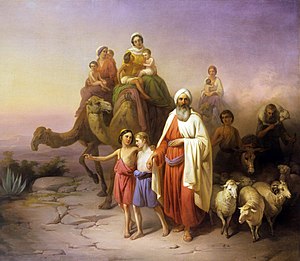The Gospel of Matthew
Written by Matthew, c. 44-50 AD
Matthew wrote to show unbelieving Jews in Palestine that Jesus is the promised Messiah, and King. He also wrote to encourage those converted that although He has turned to Gentiles, the Lord has reserved a future for Israel. Matthew’s focus is therefore the Messianic/Kingly character of Jesus while showing that as a consequence of being rejected, God now looks to Gentiles in the current administration of His program.
Chapters 1—4 Early Life and Ministry of Jesus
The genealogy (from Abraham-David-Captivity-Jesus) confirms Jesus as the promised King. The announcement to Joseph identifies the Child as the one who brings salvation. In His baptism, not only is He identified with John’s message of repentance, but is anointed (as kings were) by the Spirit. Even in temptation He remains noble.
Chapters 5—9 The King Proclaims His Standards; Reveals His Authority
The King offers a heightened standard—one of nobility (5:1-16); an internal (not only demonstrable) focus; a gallant lifestyle (6:1—7:12). Jesus then invites all to be citizens of the Kingdom (7:13-29). Punctuating his invitation, He heals the clean and unclean (8:1-22), commands the natural and supernatural (8:23—9:17), and restores life, sight, and sound (9:18-38). His claim to forgive sin is clearly of God.
Chapters 10:1—16:12 The King and His Kingdom Offer is Rejected
Even though rejected and accused of being empowered by Satan (10:1--11:1), the King still extends peace and rest to those burdened by an oppressive religious system (11:28-30). Through parables, Jesus explains to the disciples God’s new administration.
Chapters 16:13—20:28 The King Reveals Himself to the Disciples
After explaining that He must die, Jesus reveals His transfigured glorious state to three disciples (16—17). He institutes administrative (church discipline) and lifestyle changes (divorce, rewards) applicable in the new administration (18—20).
Chapters 20:29—25:46 The King’s Presentation and Predictions
The King rides into His city; is rejected by the people; is challenged by the leaders. After announcing judgment upon Israel, Jesus responds to the disciple’s questions, explaining events and circumstances leading to His return.
Chapters 26—28 The King’s Passion to the Cross and Resurrection
The trials and crucifixion demonstrate the King’s Messianic service to His people. Yet, it is not in death but in His resurrection that His claim as King is validated. He sends the disciples to preach the Kingdom message to the world.
Key Verse: Matthew 11:28—30
“Come to Me, all who are weary and heavy-laden, and I will give you rest. Take My yoke upon you, and learn from Me, for I am gentle and humble in heart; and you shall find rest for your souls, for My yoke is easy, and My load is light.”
 Image via Wikipedia
Image via Wikipedia


